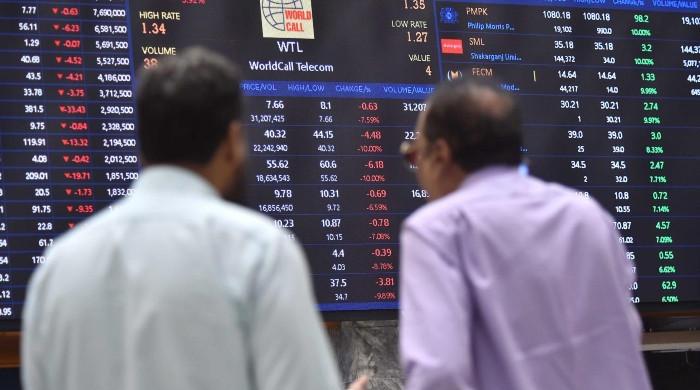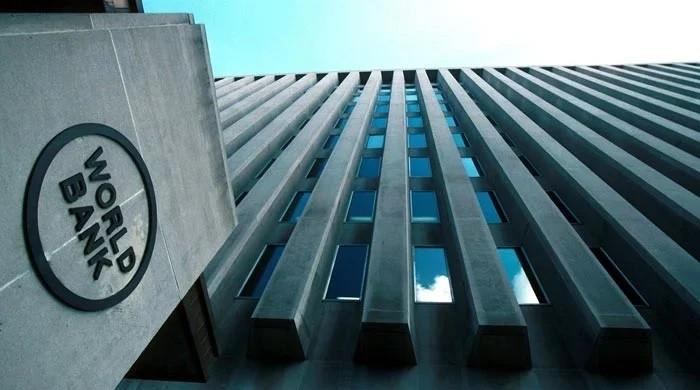Asian markets mostly off after Spain downgrade
HONG KONG: Asian markets were mostly lower on Friday after Standard & Poor's cut Spain's sovereign credit rating, renewing concerns about the extent of Europe's fiscal woes. The losses follow a week...
October 14, 2011
The losses follow a week of broad global gains that were fuelled by easing tensions over the eurozone as its leaders prepare to hammer out a deal to solve their debt crisis.
However, the euro managed to hold up against other major currencies as the Spain downgrade was not seen as a surprise.
Tokyo closed 0.85 percent, or 75.29 points, lower at 8,747.96 and Sydney fell 0.92 percent, or 38.9 points, to 4,205.6.
Hong Kong fell 1.05 percent by the break and Shanghai lost 0.67 percent as data showed Chinese inflation eased only slightly in September, and analysts warned it might not be enough to lead to an easing of monetary policy.
However Seoul ended 0.68 percent, or 12.30 points, higher at 1,835.40.
On Thursday, S&P chopped Spain's long-term credit rating by one notch to "AA-" from "AA" with a negative outlook, following downgrades to the country's top banks on Tuesday.
"The financial profile of the Spanish banking system will, in our opinion, weaken further," S&P said.
While factors that impede Madrid's recovery of domestic demand "are not unique to Spain," it said "they impact Spain with particular force given its high level of private sector leverage, much of which is funded externally."
The move prompted fresh questions about how to contain the eurozone's debt crisis, just days after France and Germany vowed to hammer out a blueprint to tackle the problem.
"Given the size of the Spanish economy and outstanding debt, the downgrade will keep contagion risk high and risk sentiment down," said Andy Ji, a currency strategist at Commonwealth Bank of Australia.
However some analysts said the downgrade was "already expected".
"Now the market is looking toward expected capital injections by governments in the eurozone, which would be supportive for the euro," said Koji Fukaya, director of fixed income and global foreign exchange research at Credit Suisse.
The single European unit bought $1.3772 and 105.91 yen in Tokyo trade, just slightly down from $1.3783 and 105.92 yen in New York late Thursday.
The dollar was flat at 76.85.
The Spain move followed a warning from the French finance ministry Thursday that European lenders will likely be forced to write off more Greek debt than the 21 percent proposed in a July accord on a second bailout for Athens.
In a briefing ahead of this weekend's G20 finance ministers' meeting in Paris, officials said EU states would set up a mechanism to allow banks in difficulty to seek assistance but that the statutes of the European Financial Stability Facility (EFSF) would not change.
Lenders have been asked to increase their core capital reserves so they can better cope with any losses on their holdings of weak eurozone state bonds.
Slovak lawmakers on Thursday approved an increase in the EFSF bailout fund to 440 billion euros, as had been expected.
Slovakia, the last country in the 17-member eurozone to ratify the fund designed to help debt-mired nations, held a second vote after a failed attempt Tuesday.
On Wall Street the Dow fell 0.35 percent, the S&P 500 fell 0.30 percent and the Nasdaq gained 0.60 percent.
Data showed Friday that China's consumer price index rose 6.1 percent in September, down from 6.2 percent in August, following government efforts to tame inflation in the world's second-biggest economy.
Inflation hit a more than three-year high of 6.5 percent in July, stoking concerns about social unrest sparked by rising costs.
However, Daniel So, an analyst at SHK Financial, said: "I don't believe that there will be a softening of China's monetary policy such as a reserve requirement ratio cut over the weekend, which may disappoint some bulls."
And Zhuang Qianhua, an analyst with Huatai Securities, told Dow Jones Newswires: "Though there is some easing in (the consumer price index), it is still at elevated levels.
On oil markets New York's main contract, light sweet crude for delivery in November, was up 20 cents to $84.43 per barrel on signs of strengthening energy demand in the United States.
Brent North Sea crude for December delivery dipped five cents to $111.06.
By 0700 GMT gold was at 1,672.00 an ounce, compared with the $1,668.60 it was at by 1100 GMT Thursday. (AFP)











